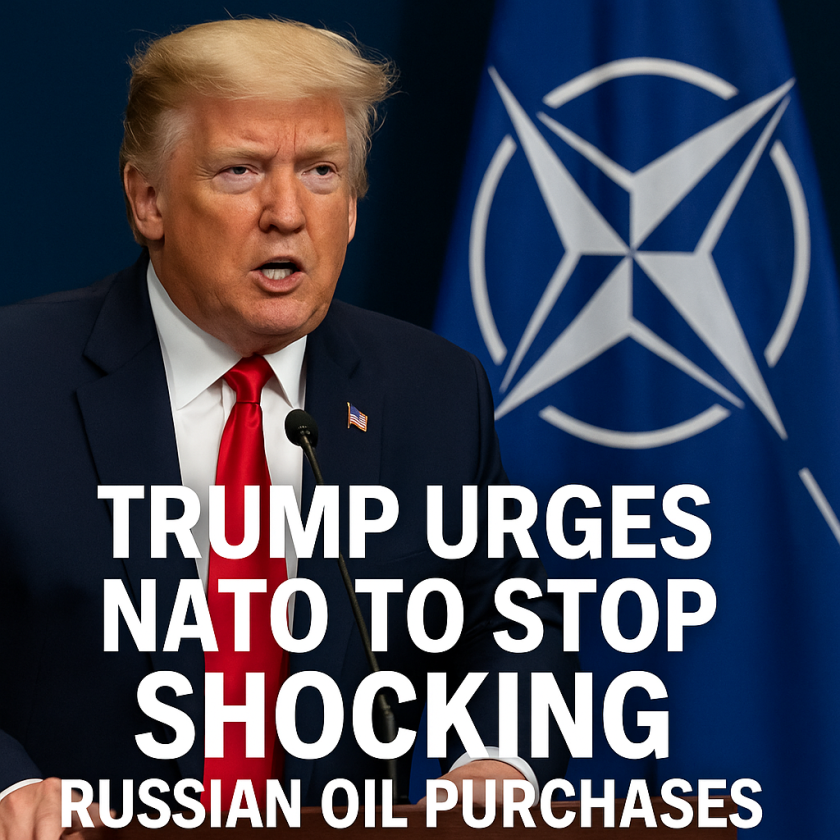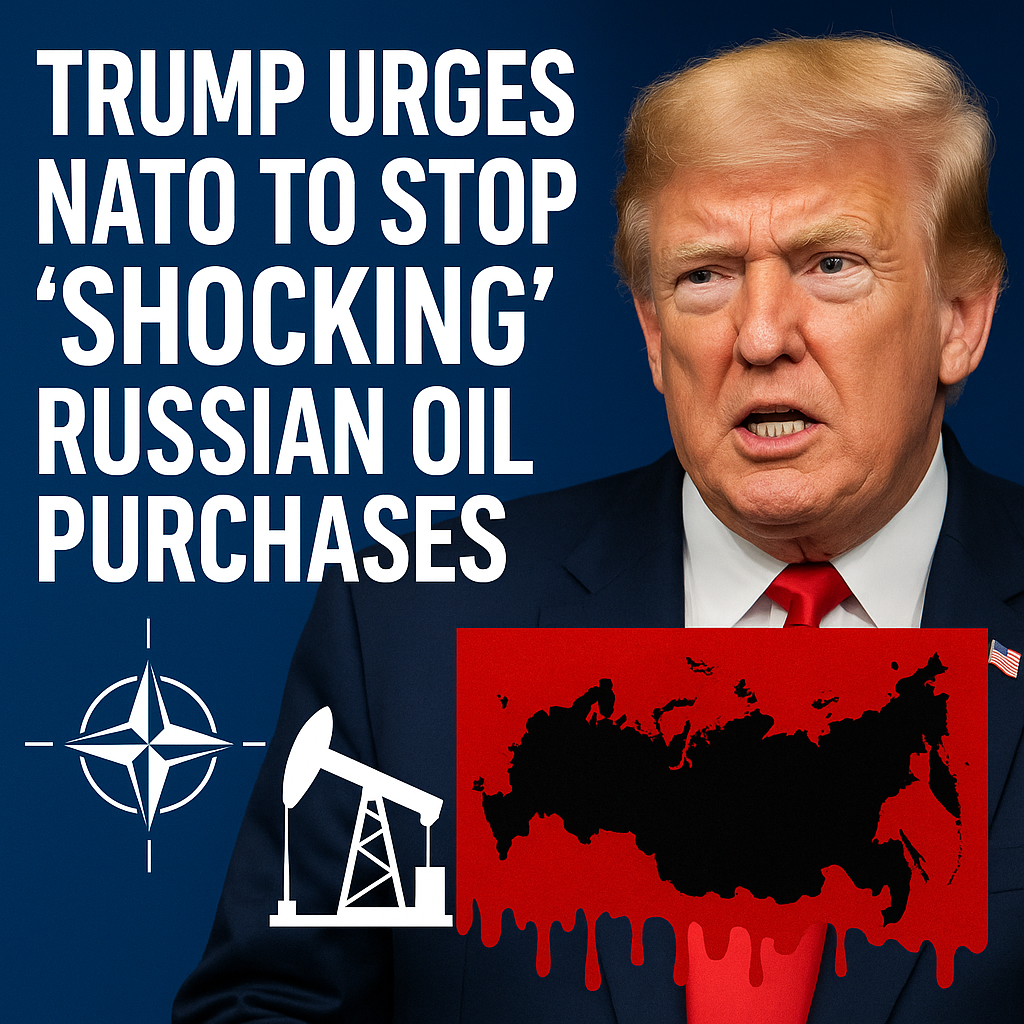Trump Urges NATO to Stop Shocking Russian Oil Purchases
Trump Urges NATO to Stop Shocking Russian Oil Purchases: A Necessary Step?
Donald Trump has recently called on NATO countries to put an end to what he characterized as “shocking” oil purchases from Russia, stressing that halting these transactions could be a pivotal step toward resolving the ongoing conflict in Ukraine. This commentary comes amid intensifying debates about energy reliance and geopolitical dynamics, particularly as European nations grapple with the ramifications of their energy policies in light of the war.
The Geopolitical Landscape: Energy Dependency

Trump’s remarks resonate amidst a backdrop marked by rising global energy prices and complex supply chains. The conflict in Ukraine has prompted significant scrutiny over European countries’ purchases of Russian oil, which some argue directly funds the ongoing war efforts.
– Economic Implications: Economically, many European countries have historically depended on Russia for a substantial portion of their oil and gas. For instance, reports indicate that EU countries imported around 600,000 barrels of Russian oil daily prior to the conflict. The dependency not only raises concerns about financial implications but also about the geopolitical leverage that Russia gains as a result.
– Shifts in Energy Policy: Facing international pressure, some European nations have begun to reassess their energy strategies. For example, Germany has indicated plans to reduce its reliance on Russian gas and oil, though the transition remains fraught with challenges, leading to rising energy costs for consumers and businesses alike.
Divided Opinions: A Call to Action or Political Posturing?
The response to Trump’s call has been decidedly mixed, with various stakeholders offering divergent perspectives.
Support for Ending Purchases
Many politicians and commentators agree with Trump’s view that halting Russian oil imports is crucial for undermining its war capabilities. They argue that continuing this arrangement essentially funds military aggression and prolongs the conflict in Ukraine.
– Economic Sanctions as a Strategy: A faction within NATO insists that leveraging energy sanctions can effectively weaken Russia’s hold on Ukraine. This aligns with numerous calls for serious economic measures against Russian energy exports, suggesting that a concerted effort might bolster Ukraine’s defenses and recovery.
Counterarguments and Economic Realities
Conversely, others caution against an abrupt withdrawal from Russian oil supplies, noting the potential economic fallout.
– Economic Strain on NATO Members: Critics express concerns that such a move could exacerbate energy crises within NATO countries, especially in the wake of rising costs. This sentiment echoes from various European leaders who express apprehension about the immediate socio-economic consequences of significantly cutting off Russian oil.
– Strategic Alternatives: Some policymakers advocate for a more measured approach, highlighting the importance of developing alternative energy sources and increasing domestic production before imposing strict sanctions. The transition to renewable energy, while economically and environmentally sound in the long term, requires substantial investment and time, making rapid shifts challenging.
A Path Forward: The Need for Unity
The discussion of Trump urging NATO to stop Russian oil purchases reflects broader concerns about international unity in the face of aggression. As NATO members debate the best course of action, it underscores a pressing need for cooperation and strategic planning.
Collaborative Energy Solutions
– Investment in Renewables: As nations rethink their energy policies, investments in renewable energy and alternative sources can play a central role. Collaborative efforts to harness green technology and reduce fossil fuel reliance could pave the way for a more sustainable and secure energy future.
– Unity Against Aggression: Ultimately, both supporters and critics acknowledge the need to present a united front against Russian aggression. While opinions diverge on the best methods, the consensus remains that NATO must work together to mitigate the conflict’s impact on global stability.
Conclusion: Balancing Values and Pragmatism
In summation, Trump’s call for NATO to stop “shocking” purchases of Russian oil encapsulates a multifaceted issue combining geopolitical strategy, economic realities, and moral considerations. While the urgency to cut off funding to Russia resonates with many, the implications of such an action are undeniable.
As NATO countries explore potential solutions, they must balance immediate economic needs with long-term security objectives. The need for a cohesive strategy that acknowledges diverse perspectives and promotes energy independence cannot be overstated. In navigating these complexities, a path rooted in cooperation and foresight remains crucial in addressing not just the immediate crisis in Ukraine, but the broader implications for global stability.






































